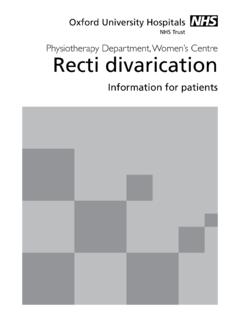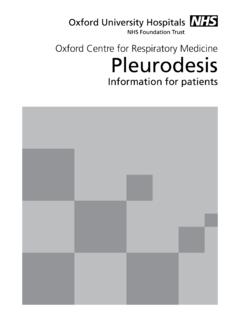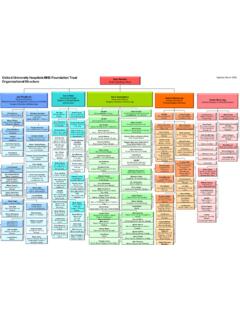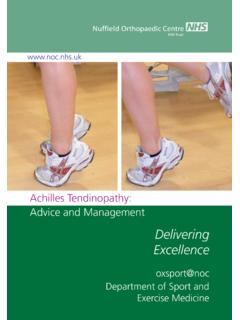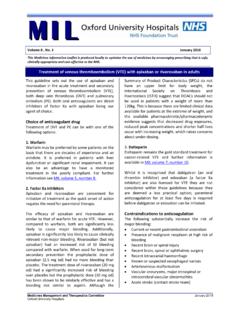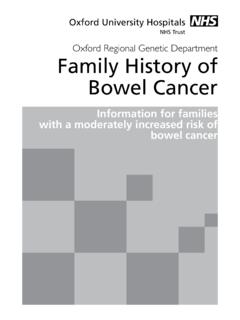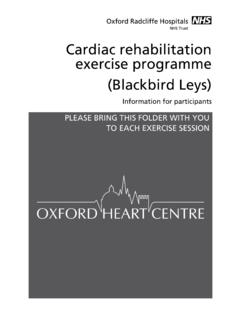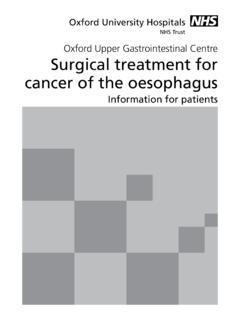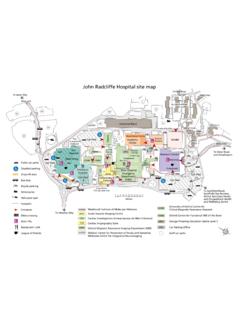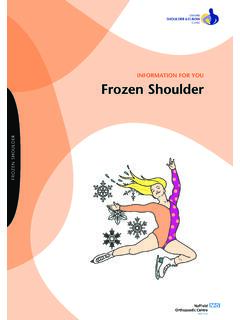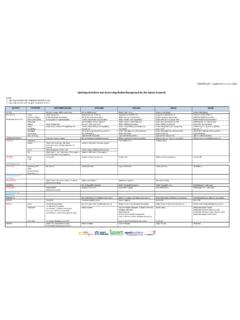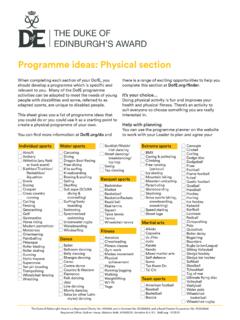Transcription of Emergency Department Advice after your child’s head injury
1 Emergency DepartmentAdvice after your child s head injuryInformation for parents and carersYour doctor or nurse practitioner has examined your child and is happy for them to go home. When you get your child home it is very unlikely that they will have any further problems. However, you should not leave your child alone for the first 24 hours. You can let them sleep as they would do normally, but check on them every hour or so. If you are unable to stay with them, please make sure that another responsible adult is with your to look out forMost head injuries do not lead to serious complications. However, if your child experiences any of the following symptoms, you should immediately go to your nearest Emergency Department : becoming unconscious or a lack of full consciousness ( problems keeping eyes open) drowsiness (feeling sleepy) that goes on for longer than 1 hour, when they would normally be wide awake confusion ( not knowing where they are, getting things muddled up) difficult to wake three or more episodes of vomiting (each vomit must be separated by 30 minutes to count as a new episode) problems understanding or speaking loss of balance or problems walking weakness in one or both arms or legs a seizure or fit (including collapsing or passing out suddenly) changes in your child s eyesight severe or worsening headache that won t go away, despite taking painkillers (a mild headache is normal)
2 Clear fluid or blood coming out of your child s ears or nose new deafness in one or both 2 ConcussionConcussion is a temporary brain injury , which can be caused by a direct blow to the head, or by a blow to another part of the body that causes sudden jarring of the head. It can affect the normal functioning of the brain, but is not always caused by any physical damage to the brain itself. This results in a certain signs and symptoms that start soon after the injury , but don t last read the following signs and symptoms and follow the advised action. If the symptoms of concussion don t settle down after 1-2, weeks you should take your child to see their GP for a treatment of concussion follows four simple principles, called the 4R s: Recognise, Remove, Rest, RECOGNISE A child does not need to have been knocked out to have they may tell you: headache feeling dizzy ringing in their ears feeling sick difficulty concentrating blurred vision feeling dazed feeling not quite right.
3 Things you may notice: sleepiness poor concentration seeming easily distracted appearing more emotional appearing slowed down .page 32 REMOVE You should remove your child from physical activities whilst they recover. Returning to physical activity or sport too soon can: prolong the symptoms of concussion increase the risk of further concussion increase the risk of other injuries affect school further brain injury before a concussion has fully resolved can lead to permanent brain injury or, very rarely, REST The most important treatment for concussion is rest. For the first 24 hours your child should rest completely from both physical and mental (brain) activities. Physical rest your child should rest from physical activity for at least 14 days, or longer if symptoms continue.
4 They can begin to return to light day to day activities as symptoms settle. Mental rest Spending a long time reading, watching TV, playing computer games, etc. will initially make symptoms worse. after 24 hours of complete rest, these can be gradually re-introduced. School It is unusual for children to need a long time off school following a minor head injury with concussion symptoms. It is not unreasonable for them to miss a day or two if they continue to feel unwell or their symptoms return during lessons. Make sure that you tell their school/teachers about the 44 RETURN Once any symptoms have settled, and after a minimum of 14 days rest, your child can begin to return to sport/exercise through a Graduated Return to Play (GRTP) programme.
5 This is available online from most Sporting Governing Bodies. If you are unable to find the policy for your child s sport, you should follow the Rugby Football Union s HEADCASE +InformationIt is important that school teachers and sports coaches are aware that your child has had concussion. You can use the slips on page 7 to give to them, so that they have a 5 How to contact usIf you have any questions or concerns within the first 24 hours after your child has left hospital, please contact Injuries, Emergency DepartmentJohn Radcliffe Hospital Tel: 01865 220 212 Alternatively, or more than 24 hours after leaving hospital, you can contact your GP or NHS 111 (dial 111 for free) for urgent 6page was diagnosedwith concussion on .. /.. /.. The Emergency Department team has advised them to avoid exercise for the next two have been advised to follow the Graduated Return to Play guidelines, which are available on the RFU and FA s was diagnosedwith concussion on.
6 /.. /.. The Emergency Department team has advised them to avoid exercise for the next two have been advised to follow the Graduated Return to Play guidelines, which are available on the RFU and FA s websites. OMI 36865 PIf you have a specific requirement, need an interpreter, a document in Easy Read, another language, large print, Braille or audio version, please call 01865 221 473 or email Chris Bird, PEM Consultant Joanne Rogers, Junior Sister, Emergency DepartmentFebruary 2018 Review: February 2021 Oxford University Hospitals NHS Foundation TrustOxford OX3
